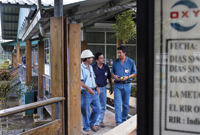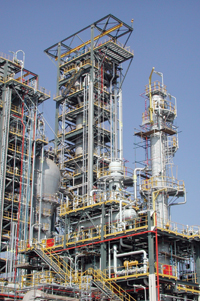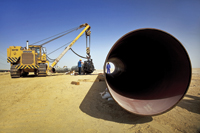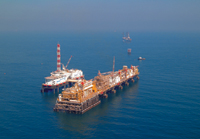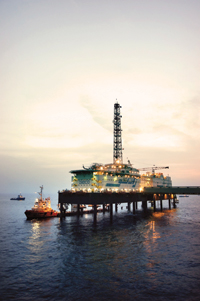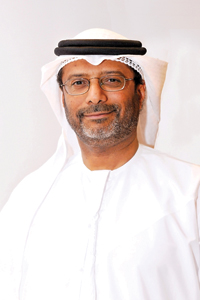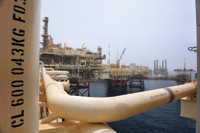
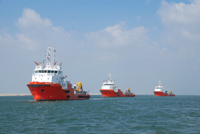 Esnaad ... bulking up
Esnaad ... bulking up
ABU DHABI-BASED shipowner Esnaad is still hungry for new ships, even after pushing successfully and heavily to build a fleet with young, high-specification offshore vessels. At the same time, Esnaad’s peers in the Persian Gulf readily describe the company as a “top-notch operator” and tell TradeWinds that it is a “highly regarded” player in the sector.
However, offshore owners around the world should probably take a close look at the company for one more important reason: Esnaad is a state-owned spoiler meant to keep vessel rates in check.
Esnaad, which means “support” in Arabic, is a 100 per cent subsidiary of the Abu Dhabi National Oil Company (Adnoc). With 1,400 employees, the company will be running 48 offshore vessels by the end of this year, after 25 new deliveries were made in the past six years.
Facing a strong oil-company-owned player such as Esnaad is perhaps the scenario owners in Norway had in mind when they began questioning Statoil’s plans to own its own rigs and when other owners remarked with apprehension as BP Shipping started ordering its own platform-supply vessels (PSVs).
Esnaad operations manager Saif Ali Al Hebsi says his company’s current newbuilding plans will see the fleet climb to 55 vessels next year, 63 in 2014 and 68 by 2015.
From now until 2015, the company is so far spending around $1 billion on newbuildings, he says. About $200 million is earmarked for 10 PSVs, with dynamic positioning 2 (DP2).
Esnaad is building up a significant presence of nearly 70 ships but, at the same time, is also concentrating on meeting Adnoc’s desire for environmental performance and high specifications, so vessel quality is at the top of the agenda.
While Esnaad is not building any deepwater-size ships, it has introduced diesel-electric (DE) propulsion to reduce emissions and save on fuel, along with using clean designs (CDs).
Al Hebsi believes Esnaad may have all the eight ships with “green notations” from class societies in the whole Gulf, while adding that DE systems are also rare in the region. Like most owners, Esnaad is under pressure to operate an economically viable business but, unlike most owners, it is under no pressure to rake in as much profit as it can.
All these points add up to mean that potential competitors are facing a large, state-of-the-art fleet, with high operational standards that resembles a non-profit entity.
When asked to discuss Esnaad’s role, Al Hebsi is clear about its move to affect rates.
“Esnaad was actually established to serve Adnoc and to make a balance in the market, let’s say, to give Adnoc a way to put a price control on rates, otherwise the market is just going up and down,” he says.
He adds that Esnaad seeks to control about 60 per cent of the vessel business for Adnoc arms Abu Dhabi Marine Operating Co (Adma-Opco) and Zakum Development Co (Zadco), with no desire to give control to small private owners in the region.
“This doesn’t mean that we can’t work outside the Adnoc umbrella because, in 2008, we had two vessels with Saudi Aramco. The growth in Abu Dhabi is keeping all our vessels busy at the moment so we have nothing available to market outside of the Adnoc umbrella,” says Al Hebsi.
Meanwhile, one of the company’s big challenges is crewing.




















































































